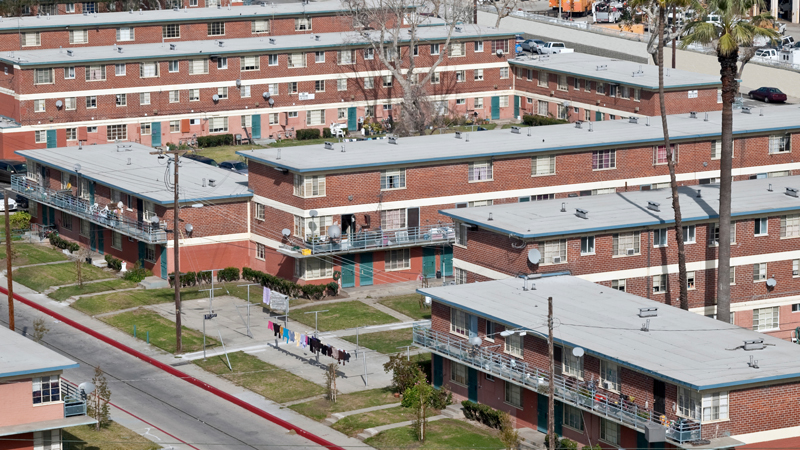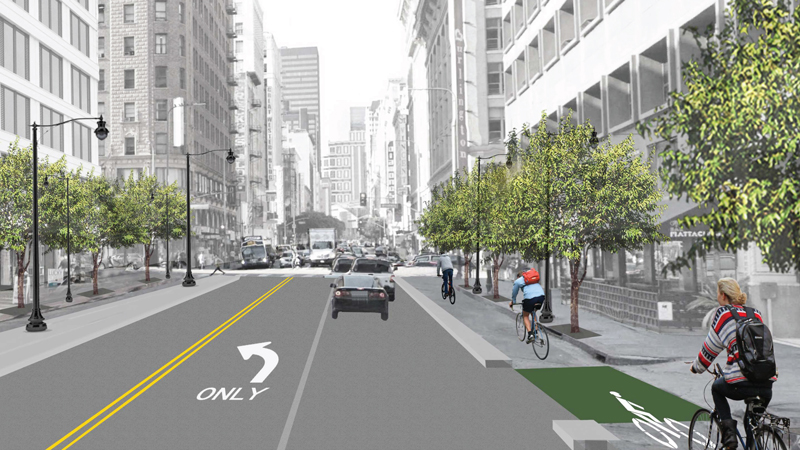3.0 minute read
October 27, 2023
Assembly Bill 2097 came into effect on January 1, 2023 and exempts most development projects from having to provide minimum on-site parking when a site is located within one-half mile form a major transit stop. While most agencies are aware of this new requirement, many agencies have not analyzed the impact this may have on their parking-in-lieu fee.
Overview of AB 2097
Section 65863.2 has been added to the Government Code. It reads:
(a) A public agency shall not impose or enforce any minimum automobile parking requirement on a residential, commercial, or other development project if the project is located within one-half mile of public transit.
Public transit is defined as any major transit stop that is included in regional transportation plans or the intersection of two or more bus routes with a frequency of service of 15 minutes.
This section stipulates that a project is within one-half mile of transit if all parcels within the project have no more than 25% of the area farther than one-half mile from the stop. It also indicates that no more than 10% of residential units, or 100 units (whichever is less) can be farther than one-half mile from transit.
In Section 21064.3, the term, “major transit stop” means a site containing an existing rail transit station, a ferry terminal served by either a bus or rail transit service,
or the intersection of two or more major bus routes with a frequency of
service interval of 15 minutes or less during the morning and afternoon peak
commute periods.
Section 21155.4 refers to the transit priority area as defined in Section 21099. A transit priority area is an area within one-half mile of a major transit stop that is existing or planned, if the planned stop is scheduled to be completed within the planning horizon included in a Transportation Improvement Program.
Exemptions to AB 2097
There are exemptions to AB 2097 that allow the city to impose minimum parking requirements. For example, hotels, inns, and other temporary lodgings are not exempt.
The bill also gives the agency the option to impose minimum parking requirements if the agency makes written findings within 30 days of receiving the completed application.
The written findings must reinforce that not imposing parking requirements on the development would have a substantially negative impact on:
- The city’s ability to meet its share of the regional housing needs for low- and very low-income households
- The city’s ability to meet any special housing needs for elderly persons or persons with disabilities
- Existing residential and commercial parking within one-half mile of the housing development project
The exemption cannot be claimed if 20% of the units are developed for very low-, low-, or moderate-income households, students, the elderly, or persons with disabilities. Developments with fewer than 20 housing units are also ineligible for exemption.
Impact on Parking-in-lieu Fees
Many agencies have adopted parking-in-lieu fees in their downtown areas. Parking-in-lieu fees allow a developer to pay a fee if they cannot, or choose not to, construct their required on-site parking. The agency then uses the fees to construct public parking garages or lots. Because many agencies have a qualified major transit stop within their downtown area, they won’t be able to enforce minimum parking standards and therefore, won’t be able to charge an in-lieu fee. Each agency needs to evaluate their in-lieu fee program to determine the potential impact on their program and should develop a plan for spending any remaining funds.
Want to learn more about AB 2097 and how it impacts your parking-in-lieu fee? Contact the Harris team today.













